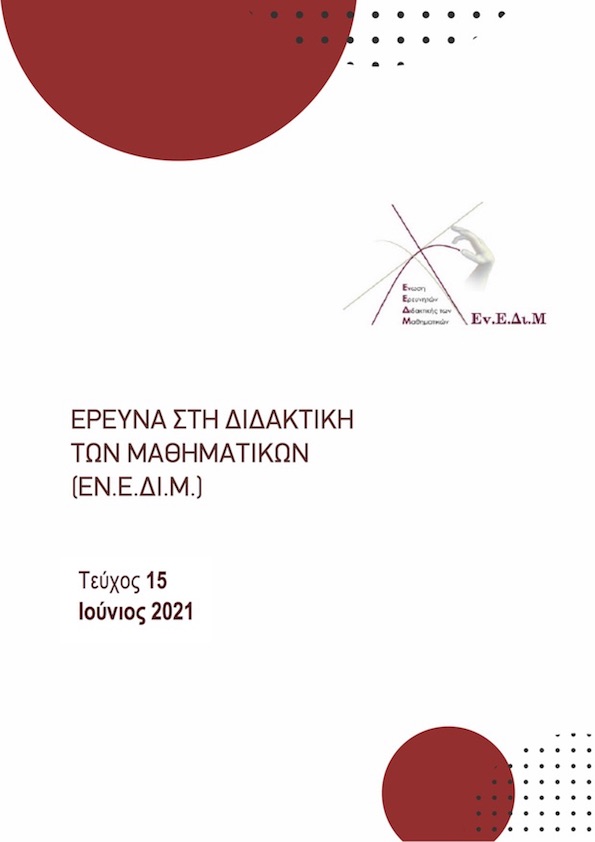INTRODUCTION OF ALGEBRA TO PRIMARY EDUCATION THROUGH THE USE OF DIGITAL TOOLS: STUDY OF TEACHING DESIGN AND PRACTICE OF PRACTICE

Abstract
In this paper we study the didactical design and practice of a primary school teacher (i.e. Eleni) through the use of the Documentational Approach to Didactics. The study took place in the context of the PREMaTT project focusing on the collaborative design of resources of a group of primary and secondary teachers for the teaching of algebra in their classrooms through the process of design-implementation–reflection. At the same time, the discussions of the professional development meetings of the group were analysed in order to identify possible influences on Eleni’s design and practice as well as indications of her professional learning. The analysis revealed that the main issues emerging in these meetings, such as the notion of variable and its introduction in classroom teaching, influenced Eleni’s documentational work inside and outside the classroom and brought to the fore the complexity of issues involved in the teaching and learning of algebra through the use of digital technologies. The results also revealed indications of Eleni’s professional learning in relation to the teaching and learning of algebra in the primary education.
Article Details
- How to Cite
-
Κατσομήτρος (Sotirios Katsomitros) Σ., & Ψυχάρης (Giorgios Psycharis) Γ. (2021). INTRODUCTION OF ALGEBRA TO PRIMARY EDUCATION THROUGH THE USE OF DIGITAL TOOLS: STUDY OF TEACHING DESIGN AND PRACTICE OF PRACTICE. Research in Mathematics Education, (15), 60–80. https://doi.org/10.12681/enedim.20943
- Section
- Young Researchers

This work is licensed under a Creative Commons Attribution 4.0 International License.
Authors who publish with this journal agree to the following terms:
Authors retain copyright and grant the journal right of first publication with the work simultaneously licensed under a Creative Commons Attribution licence that allows others to share the work with an acknowledgement of the work's authorship and initial publication in this journal.
Authors are able to enter into separate, additional contractual arrangements for the non-exclusive distribution of the journal's published version of the work (e.g. post it to an institutional repository or publish it in a book), with an acknowledgement of its initial publication in this journal.
Authors are permitted and encouraged to post their work online (preferably in institutional repositories or on their website) prior to and during the submission process, as it can lead to productive exchanges, as well as earlier and greater citation of published work (See The Effect of Open Access).


